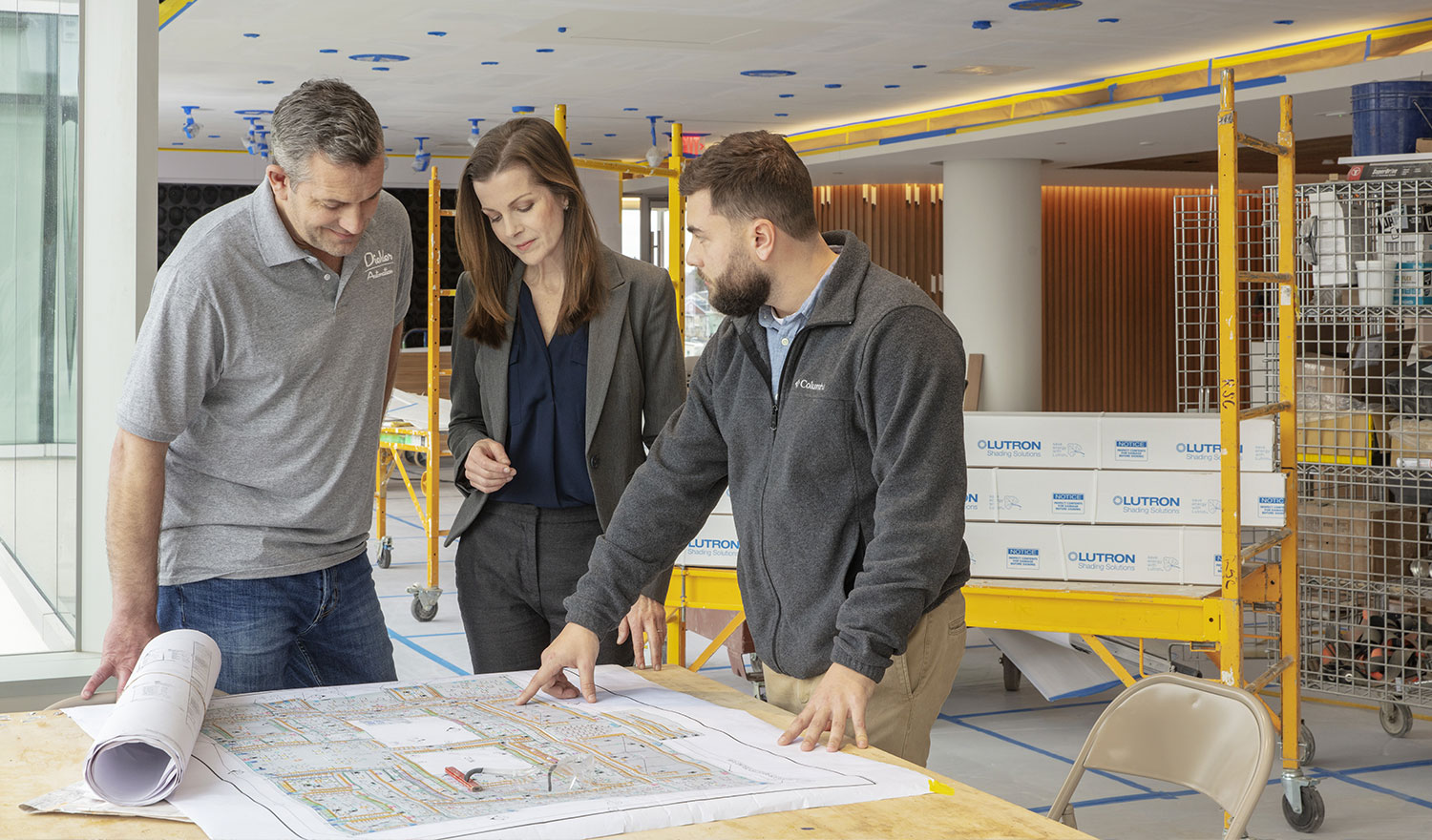Actionable Innovation with NECA's Tauhira Ali

Tauhira Ali, M.S.
Executive Director of Industry Innovation, NECA
As part of our continuing interview series, we talk innovation with Tauhira Ali, Executive Director of Industry Innovation at NECA. Throughout her academic pursuits and industry experience, Tauhira has explored how new technologies can be used to solve problems and improve processes. In 2021, she joined NECA with a focus on advancing innovation in all aspects of the electrical construction industry.
Lutron: Tauhira, it’s such a pleasure! Can you start by talking about your role as the Executive Director of Industry Innovation at NECA?
Tauhira Ali: Absolutely. NECA looks at innovation from the standpoint of how it can add value to NECA contractors and their businesses. So, I’m always thinking about how to use innovation to yield tangible results, whether it applies to personal management, marketing, or some other aspect of the trade. We’re also thinking about how we can help the whole field, not just our NECA contractors—innovation is a team sport.
Lutron: Do you have any specific tips for contractors looking to embrace innovation in their businesses?
TA: I like to follow these three guidelines when I think about innovating:
- Look inward and keep your own house in order. Ask yourself if there’s room for more efficiency. Maybe you recognize your team is bogged down with paperwork, and going paperless would help. Your first step would be to take stock of all the information currently on paper and then decide which forms are really needed and why.
- You can’t improve something you’re not measuring. You need good data to guide business decisions and set yourself up for success. Take stock of where you are today, start measuring and go from there–this is the path to bubbling up what the most immediate needs are.
- Don’t get overwhelmed. You can’t change every single process in the company in a single year. Determine what improvements make strategic sense for your business and then decide how to make them in a sustainable, long-term way. Try to be realistic about time frames.
Lutron: Some great tips there. Speaking of tips, can you share more about your podcast, “Innovation Overload,” where you interview an expert? Any favorite conversations?
TA: We created the podcast to help our contractors sort through the “overload” of talk about innovation. In each episode, we interview an expert in the industry who gives concrete examples of what innovation in construction looks like. One story that stands out is a gentlemen who shared his company’s policy of “innovation for free.” Even if they didn’t win a particular bid, he would ask the client if he could walk the site to see what the chosen contractors were doing differently. He’d even recommend any process improvements based on recent innovations—it proved his commitment to going above and beyond and showed he really cared about the client getting the best end product.
Lutron: Why is innovation so important to this industry?
TA: That’s what’s powerful about construction—it’s dynamic, which makes for really interesting problems to be solved. I’m an engineer by training with experience in robotics. In that field, you’re often solving problems in a lab somewhere with four walls and a roof—a contained space. In construction, you’re dealing with the elements: the rain, the snow, the heat. The way you use a tool in Miami is different than in Vancouver. I have such big respect for the challenges and realities of the field.
Traditionally, when people think about innovation, construction isn’t the first field that comes to mind. To be truly impactful, innovation has to be applied, and there’s a lot of opportunity for that in the construction field. That right application for innovation will likely differ from company to company—that’s where we’re here to help.
Lutron: And one of those tangible ways you help contractors is the NECA Innovation Institute. Can you explain more about it?
TA: The Innovation Institute is a year-long program, culminating in a capstone project. Each candidate selects a unique capstone project tailored to make an impact in their company. One of my personal favorites was entirely centered around turning their company into a destination for sales professionals. The candidate saw an opportunity for innovation in people management—if the company became known for helping service pros thrive, it would more easily attract and retain top sales talent and improve sales metrics over time.
Lutron: Attracting and retaining talent is so important. How is NECA attracting more diverse talent to the field?
TA: This is a tremendous challenge. The number of pros retiring is outpacing apprentices coming in. NECA has several programs in place to address this. We run adopt-a-school programs and many NECA student chapters across the country to get students thinking about construction as a career. As kids, we all build things. Play, building, design, imagination—these are natural aspects of childhood, and we’re learning how to capitalize on that experience to say, “Hey, if you’re interested in building and problem-solving, you can do that as a job and make good money without a ton of student loans.”
We also support non-traditional paths to careers in the industry—veterans or people returning to the workforce after a hiatus—at both the national and chapter level. Additionally, conferences like the Women in NECA and our Future Leaders conferences help build the community. The powerful part of our DEI&B initiative is that it’s not one-size-fits-all. We’re thinking about how to make a wider field of candidates aware of the opportunities and how to ensure the opportunities that exist are conducive for diverse voices to thrive in. Not live with, not survive in, but thrive in.
Lutron: That’s so powerful. Thank you for taking the time to talk with us today, Tauhira— it was an illuminating conversation.

